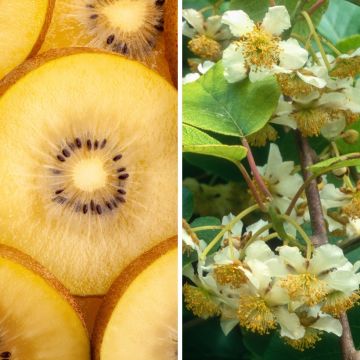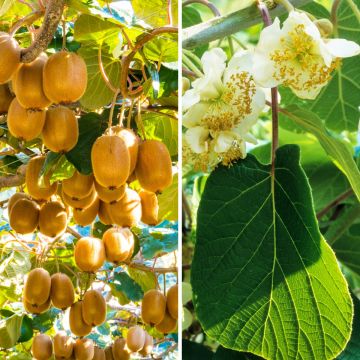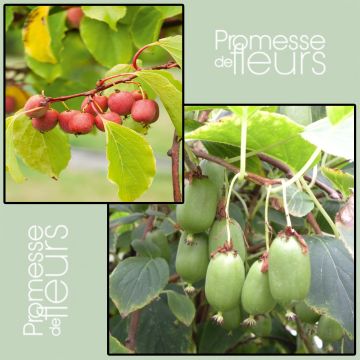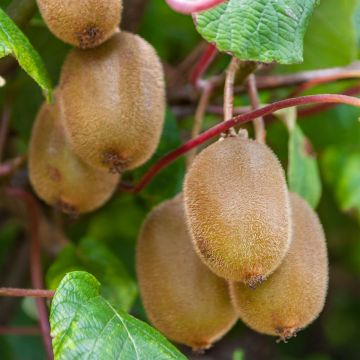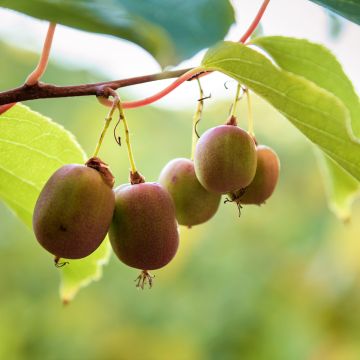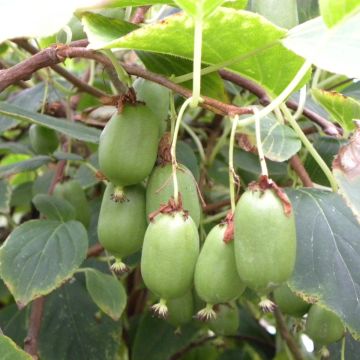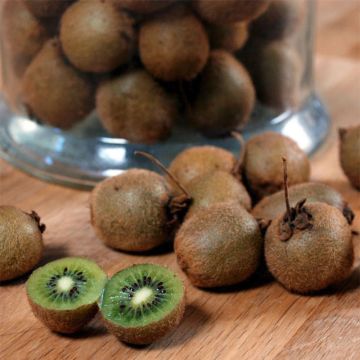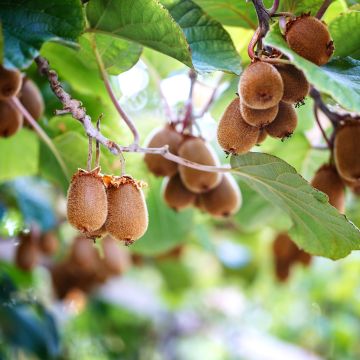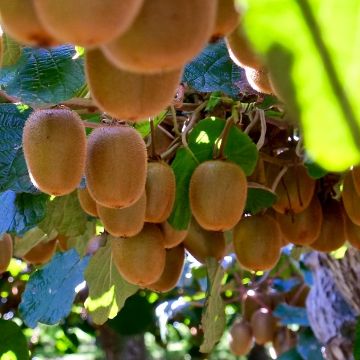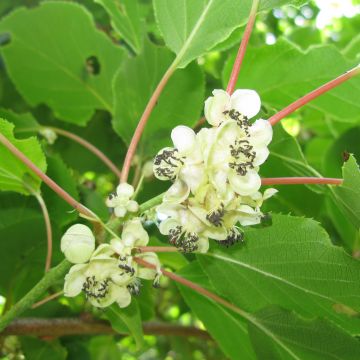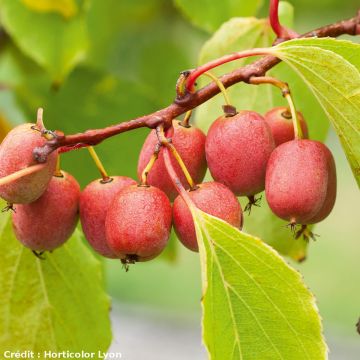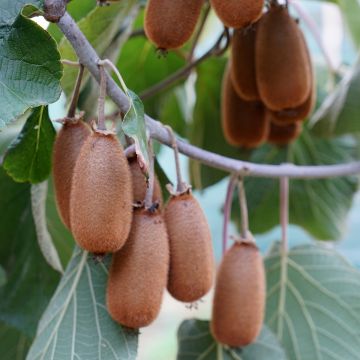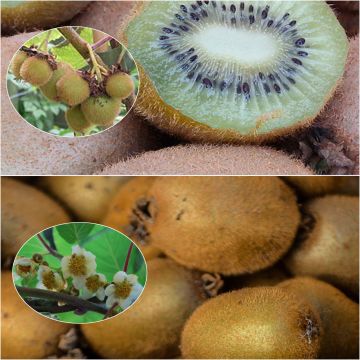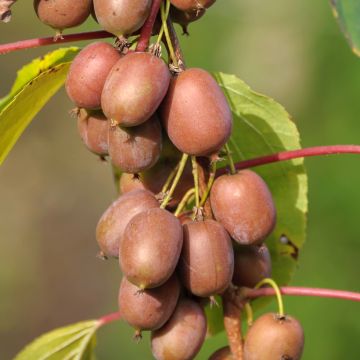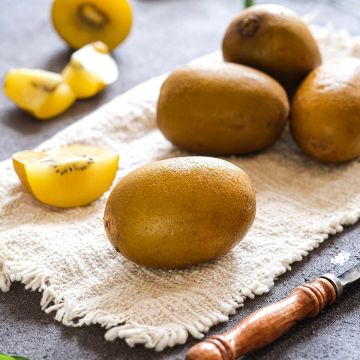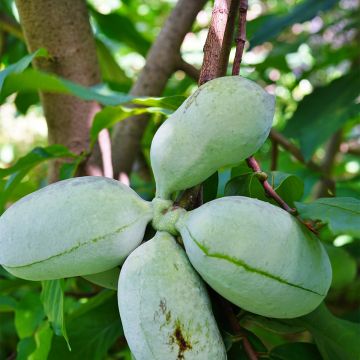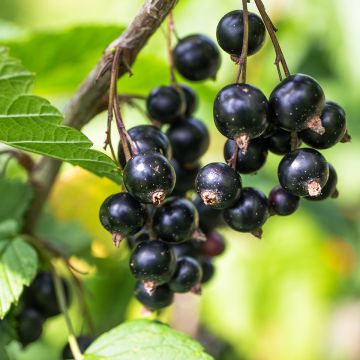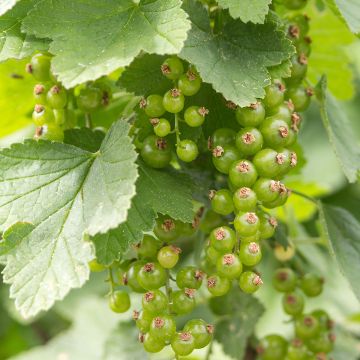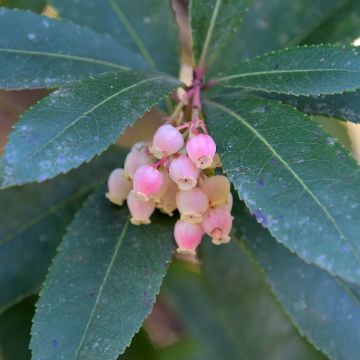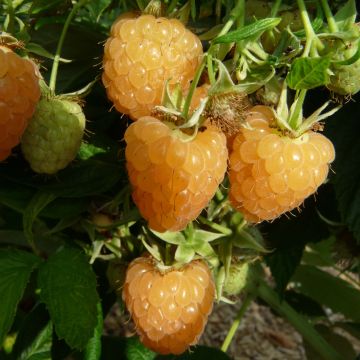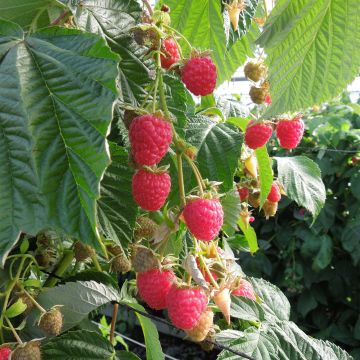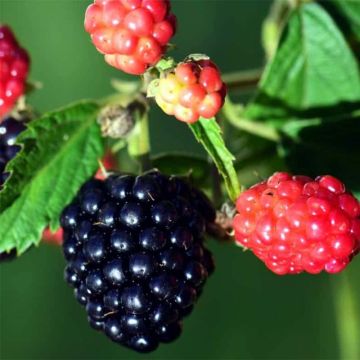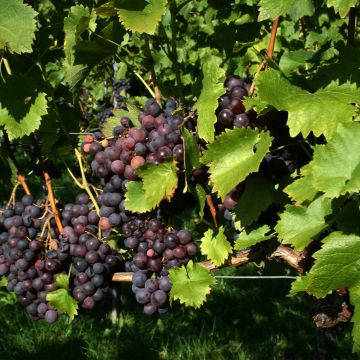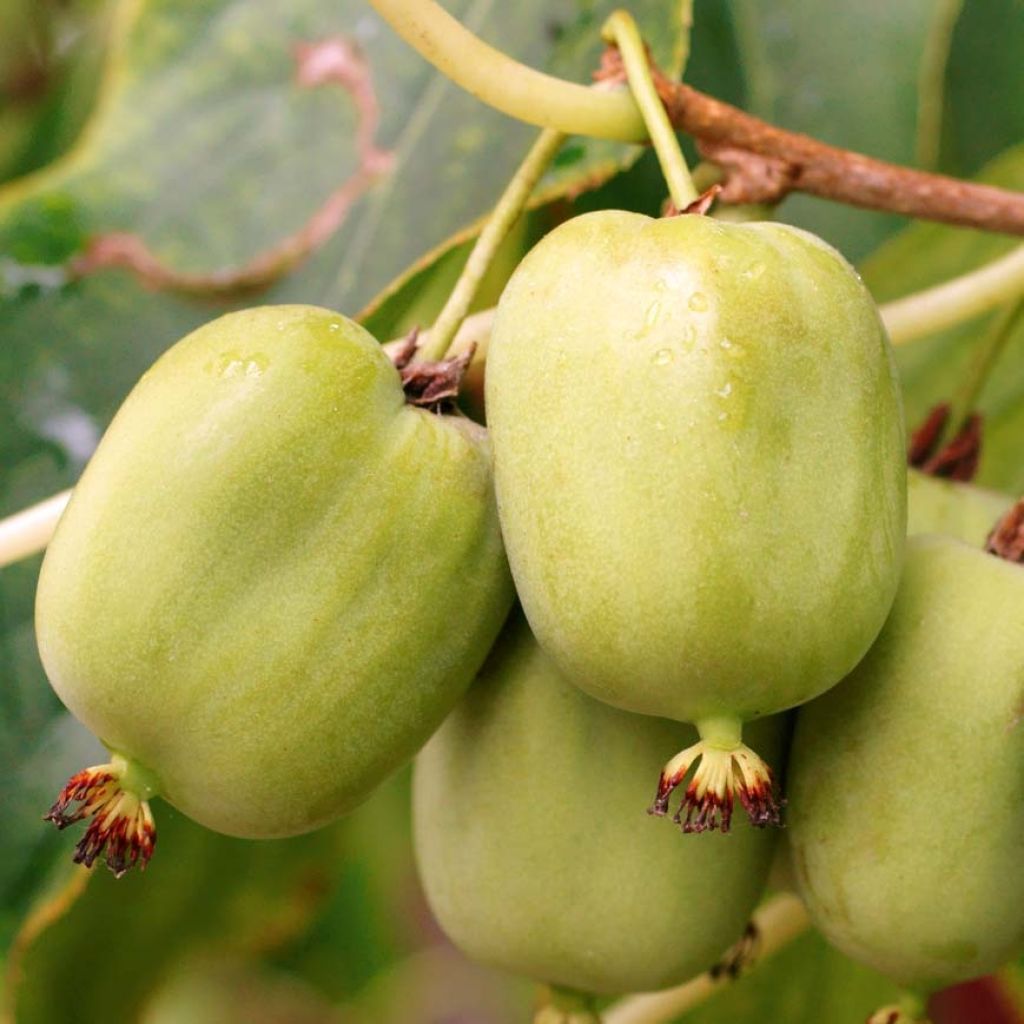

Hardy Kiwi Kokuwa (self-fertile) - Actinidia arguta
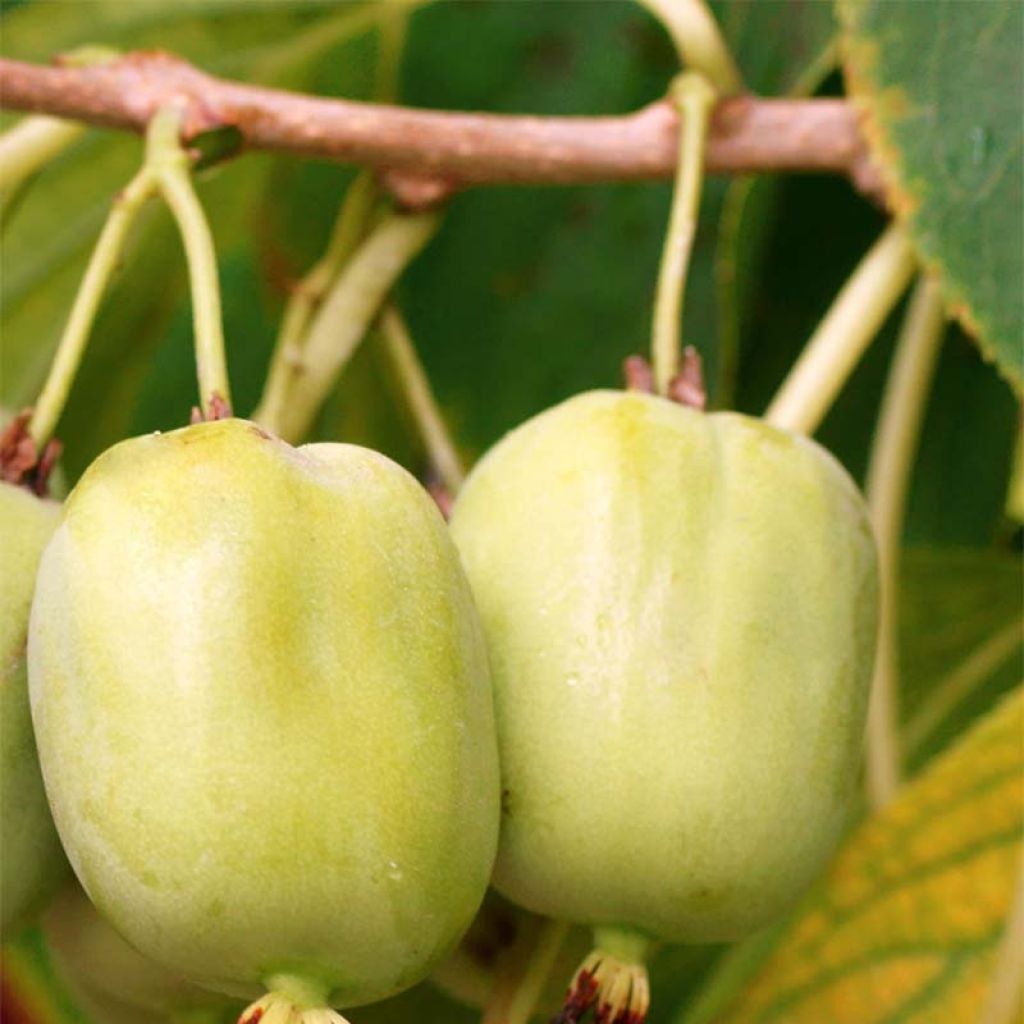

Hardy Kiwi Kokuwa (self-fertile) - Actinidia arguta
Hardy Kiwi Kokuwa (self-fertile) - Actinidia arguta
Actinidia arguta Kokuwa
Hardy Kiwi, Tara Vine, Kiwai, Kiwiberry, Grape Kiwi
Weak root system, one third of the pot, plant that has just been repotted??? Is it good for recovery???
Thierry, 07/11/2024
Special offer!
Receive a €20 voucher for any order over €90 (excluding delivery costs, credit notes, and plastic-free options)!
1- Add your favorite plants to your cart.
2- Once you have reached €90, confirm your order (you can even choose the delivery date!).
3- As soon as your order is shipped, you will receive an email containing your voucher code, valid for 3 months (90 days).
Your voucher is unique and can only be used once, for any order with a minimum value of €20, excluding delivery costs.
Can be combined with other current offers, non-divisible and non-refundable.
Why not try an alternative variety in stock?
View all →This plant carries a 6 months recovery warranty
More information
We guarantee the quality of our plants for a full growing cycle, and will replace at our expense any plant that fails to recover under normal climatic and planting conditions.
Description
The 'Kokuwa' Kiwi (Actinidia arguta) is a self-fertile variety that produces small green fruits with smooth skin and a particularly sweet and lemony flavour. The 'Kokuwa' Kiwi, also known as Siberian Kiwi, is a cousin of the kiwi whose fruits can be eaten with the skin as soon as they are harvested. It is grown vertically on a pergola or trellis. It is preferably planted in autumn in temperate regions and can bear fruit as early as the following year, although it generally takes an additional year.
The 'Kokuwa' Kiwi, also called Siberian Kiwi, Summer Kiwi, or Mini Kiwi, belongs to the Actinidiaceae family, just like its well-known cousin, the Kiwi (Actinidia chinensis or deliciosa). Originally from Asia, it is a vigorous climbing vine that can reach a height of 5 metres (16 feet). Its foliage is deciduous. The Kokuwa Kiwi is very hardy and can withstand temperatures as low as -20°C (-4°F). The stems bear large heart-shaped leaves, 8 to 10 cm (3 to 4in) long, with fine teeth ending in bristles. In early summer (June-July), fragrant and honey-bearing flowers appear, greenish-white in colour with purple anthers, grouped in threes at the axils of the leaves.
In the 'Kokuwa' variety, the flowering is followed by the formation of ovoid berries with smooth and thin skin, smaller than kiwis and more resembling large round grapes. 'Kokuwa' is similar to the 'Issai' variety, but its flesh is sweeter and its lemony flavour is more pronounced. Kiwis are also appreciated for their nutritional qualities, as they are rich in calcium and vitamin C. The 'Kokuwa' variety is self-fertile, with only one plant needed to produce fruits.
The beauty of the 'Kokuwa' Kiwi, both in terms of its foliage and its fragrant flowering, makes it a plant also used for garden ornamentation. It is necessary to train this plant on a solid support, such as a wall with sturdy wires, a trellis, a pergola, a tree trunk, or a fence. This fruit is very popular with children because it can be picked and eaten as it is in the garden. Harvesting takes place from late September to October. The fruits can be easily stored in the refrigerator for about fifteen days after harvesting. Keep them separate from other fruits to prevent them from ripening too quickly. The flavour of the Kiwai, especially the 'Kokuwa' variety, is well-suited for modern cuisine, enhancing the aroma of fruit salads and lending itself to the preparation of sweet-savoury dishes.
Report an error about the product description
Hardy Kiwi Kokuwa (self-fertile) - Actinidia arguta in pictures
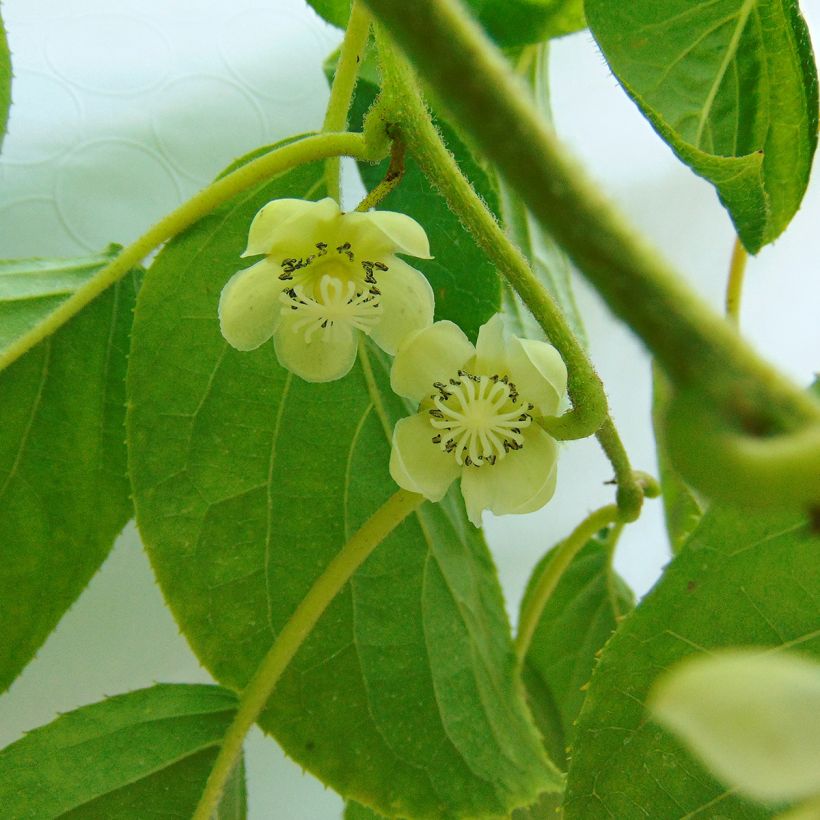

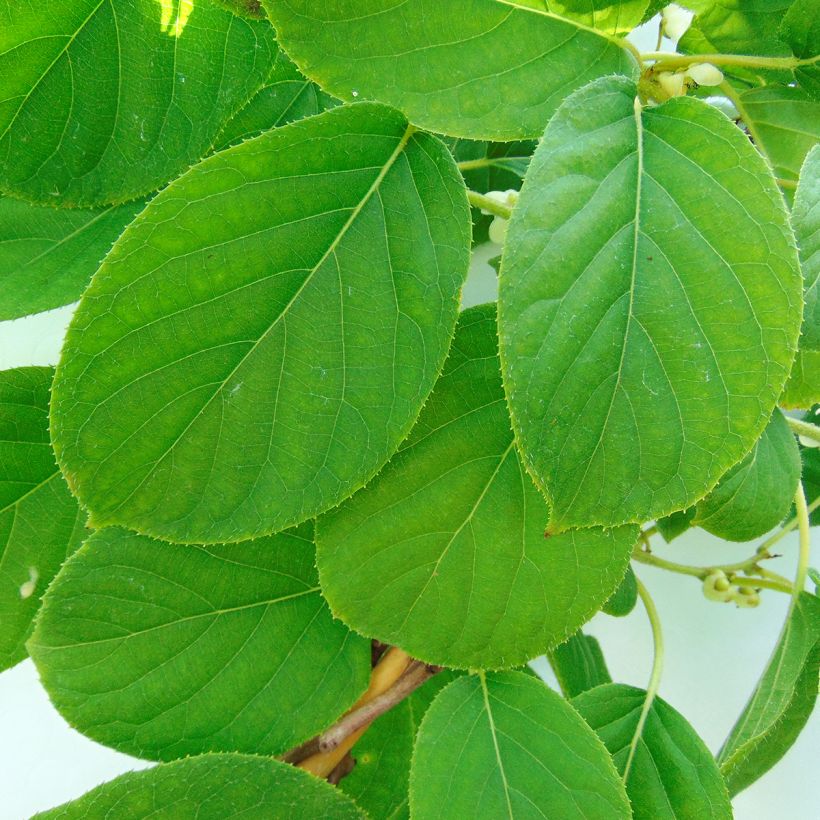

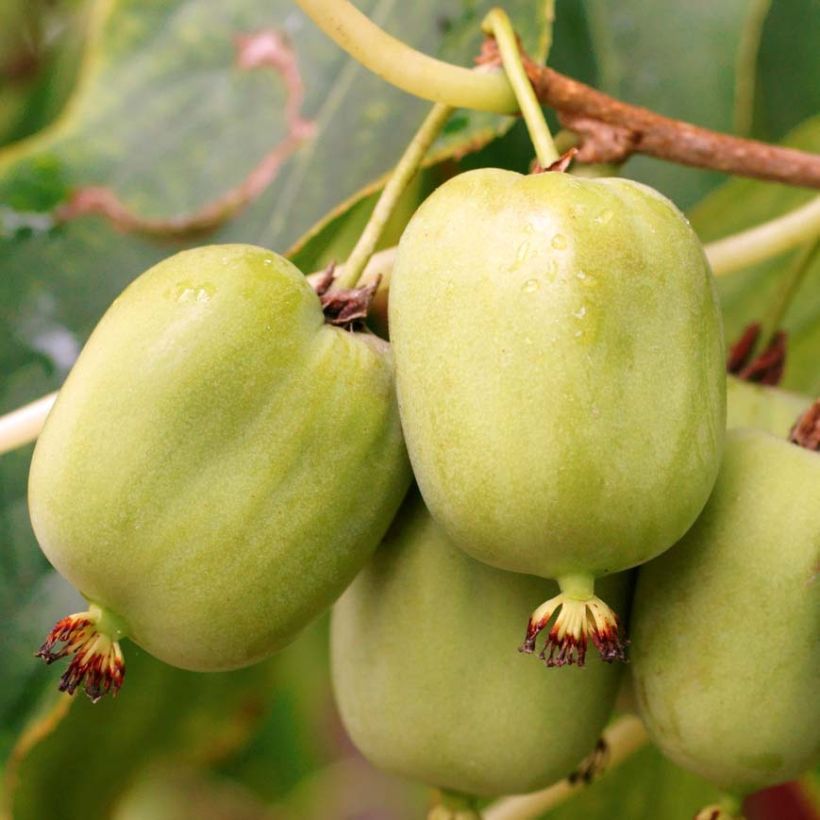

Plant habit
Fruit
Flowering
Foliage
Botanical data
Actinidia
arguta
Kokuwa
Actinidiaceae
Hardy Kiwi, Tara Vine, Kiwai, Kiwiberry, Grape Kiwi
Cultivar or hybrid
Other Kiwi bush
View all →Planting and care
Planting is preferably done in autumn, (or in spring for regions with particularly cold winters). The Kiwai will be planted in a fresh, rich, light and well-drained, non-calcareous soil. The plant fears stagnant humidity. Install it in a sunny position sheltered from strong winds.
Space the plants 2 to 3m (7 to 10ft) apart. Dig a hole of 50 cm (20in) in all directions. Spread a layer of gravel at the bottom and then a layer of soil mixed with compost. Lay the root ball diagonally and bring the stems vertically along the support. Backfill with the same mixture. Provide support to help its voluble branches climb. Apply half a watering can of water. The Kiwai has adventive roots, which develop horizontally below the surface of the soil. The soil should remain moist in summer, so it will be useful to mulch the base with a layer of 10 to 15 cm (4 to 6in). Mulching also prevents the germination of weeds and prevents water evaporation from the surface of the soil, reducing water inputs in summer.
This Kiwai requires little maintenance, simply provide regular watering. During periods of high heat, water it 1 to 2 times a week. Once established and rooted, the plant will manage on its own and will be less water demanding. Apply a fertiliser rich in crushed horn at the start of vegetation. A special fruit tree fertiliser will also be very beneficial during flowering.
Not very sensitive to insects and pests, the Actinidia arguta can nevertheless be affected by red spiders in a hot and dry environment. To eliminate them, lightly spray the foliage and the soil.
Planting period
Intended location
Care
-
, onOrder confirmed
Reply from on Promesse de fleurs
Similar products
Haven't found what you were looking for?
Hardiness is the lowest winter temperature a plant can endure without suffering serious damage or even dying. However, hardiness is affected by location (a sheltered area, such as a patio), protection (winter cover) and soil type (hardiness is improved by well-drained soil).

Photo Sharing Terms & Conditions
In order to encourage gardeners to interact and share their experiences, Promesse de fleurs offers various media enabling content to be uploaded onto its Site - in particular via the ‘Photo sharing’ module.
The User agrees to refrain from:
- Posting any content that is illegal, prejudicial, insulting, racist, inciteful to hatred, revisionist, contrary to public decency, that infringes on privacy or on the privacy rights of third parties, in particular the publicity rights of persons and goods, intellectual property rights, or the right to privacy.
- Submitting content on behalf of a third party;
- Impersonate the identity of a third party and/or publish any personal information about a third party;
In general, the User undertakes to refrain from any unethical behaviour.
All Content (in particular text, comments, files, images, photos, videos, creative works, etc.), which may be subject to property or intellectual property rights, image or other private rights, shall remain the property of the User, subject to the limited rights granted by the terms of the licence granted by Promesse de fleurs as stated below. Users are at liberty to publish or not to publish such Content on the Site, notably via the ‘Photo Sharing’ facility, and accept that this Content shall be made public and freely accessible, notably on the Internet.
Users further acknowledge, undertake to have ,and guarantee that they hold all necessary rights and permissions to publish such material on the Site, in particular with regard to the legislation in force pertaining to any privacy, property, intellectual property, image, or contractual rights, or rights of any other nature. By publishing such Content on the Site, Users acknowledge accepting full liability as publishers of the Content within the meaning of the law, and grant Promesse de fleurs, free of charge, an inclusive, worldwide licence for the said Content for the entire duration of its publication, including all reproduction, representation, up/downloading, displaying, performing, transmission, and storage rights.
Users also grant permission for their name to be linked to the Content and accept that this link may not always be made available.
By engaging in posting material, Users consent to their Content becoming automatically accessible on the Internet, in particular on other sites and/or blogs and/or web pages of the Promesse de fleurs site, including in particular social pages and the Promesse de fleurs catalogue.
Users may secure the removal of entrusted content free of charge by issuing a simple request via our contact form.
The flowering period indicated on our website applies to countries and regions located in USDA zone 8 (France, the United Kingdom, Ireland, the Netherlands, etc.)
It will vary according to where you live:
- In zones 9 to 10 (Italy, Spain, Greece, etc.), flowering will occur about 2 to 4 weeks earlier.
- In zones 6 to 7 (Germany, Poland, Slovenia, and lower mountainous regions), flowering will be delayed by 2 to 3 weeks.
- In zone 5 (Central Europe, Scandinavia), blooming will be delayed by 3 to 5 weeks.
In temperate climates, pruning of spring-flowering shrubs (forsythia, spireas, etc.) should be done just after flowering.
Pruning of summer-flowering shrubs (Indian Lilac, Perovskia, etc.) can be done in winter or spring.
In cold regions as well as with frost-sensitive plants, avoid pruning too early when severe frosts may still occur.
The planting period indicated on our website applies to countries and regions located in USDA zone 8 (France, United Kingdom, Ireland, Netherlands).
It will vary according to where you live:
- In Mediterranean zones (Marseille, Madrid, Milan, etc.), autumn and winter are the best planting periods.
- In continental zones (Strasbourg, Munich, Vienna, etc.), delay planting by 2 to 3 weeks in spring and bring it forward by 2 to 4 weeks in autumn.
- In mountainous regions (the Alps, Pyrenees, Carpathians, etc.), it is best to plant in late spring (May-June) or late summer (August-September).
The harvesting period indicated on our website applies to countries and regions in USDA zone 8 (France, England, Ireland, the Netherlands).
In colder areas (Scandinavia, Poland, Austria...) fruit and vegetable harvests are likely to be delayed by 3-4 weeks.
In warmer areas (Italy, Spain, Greece, etc.), harvesting will probably take place earlier, depending on weather conditions.
The sowing periods indicated on our website apply to countries and regions within USDA Zone 8 (France, UK, Ireland, Netherlands).
In colder areas (Scandinavia, Poland, Austria...), delay any outdoor sowing by 3-4 weeks, or sow under glass.
In warmer climes (Italy, Spain, Greece, etc.), bring outdoor sowing forward by a few weeks.






























